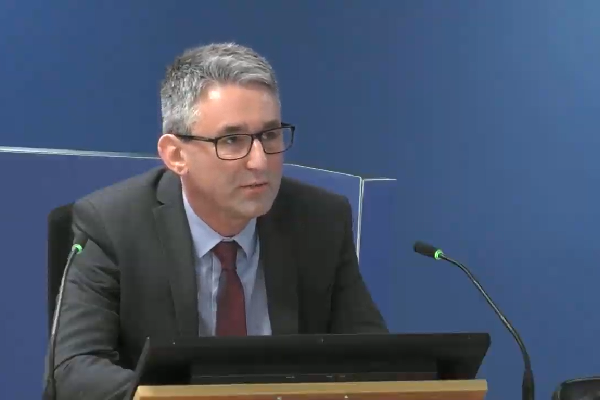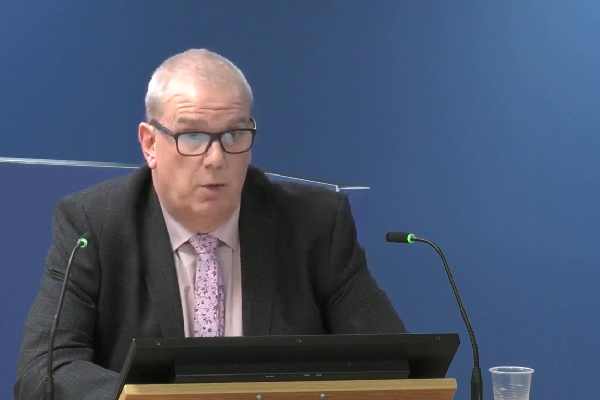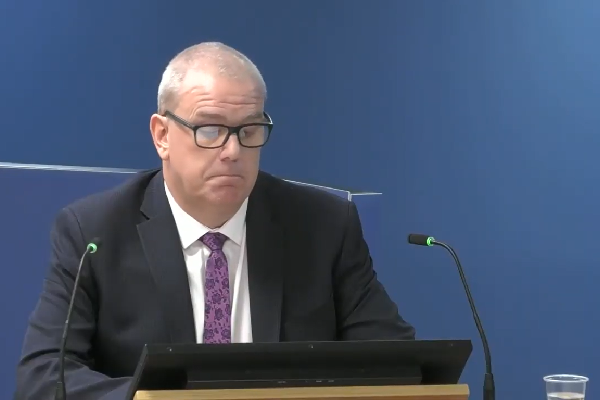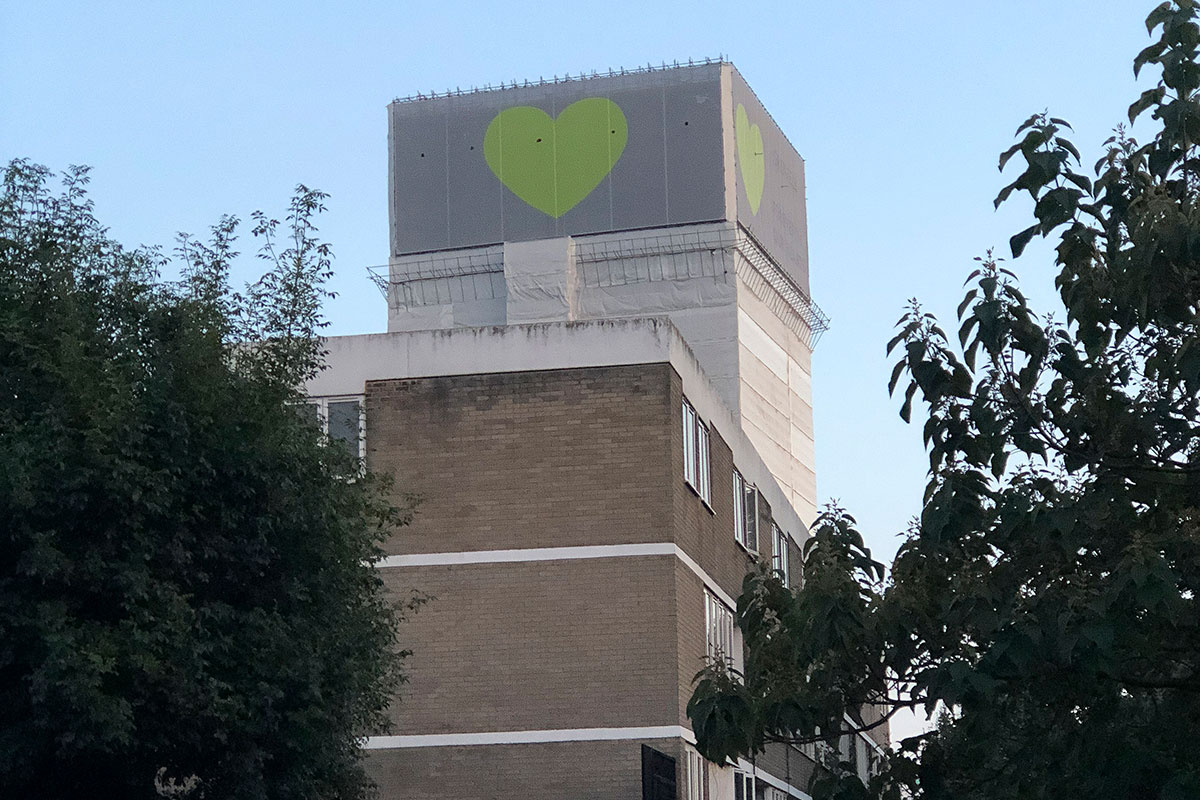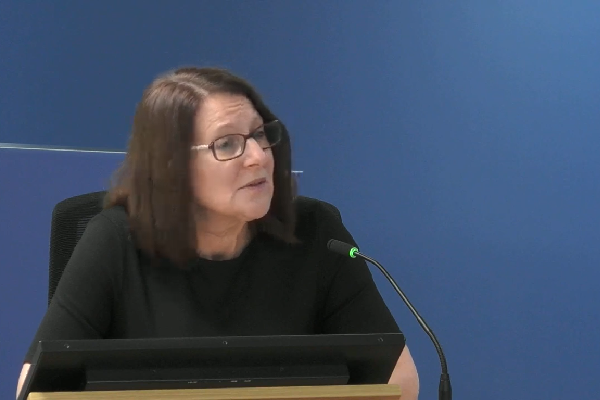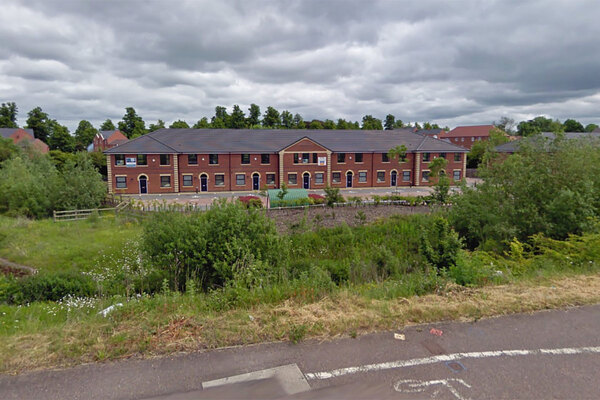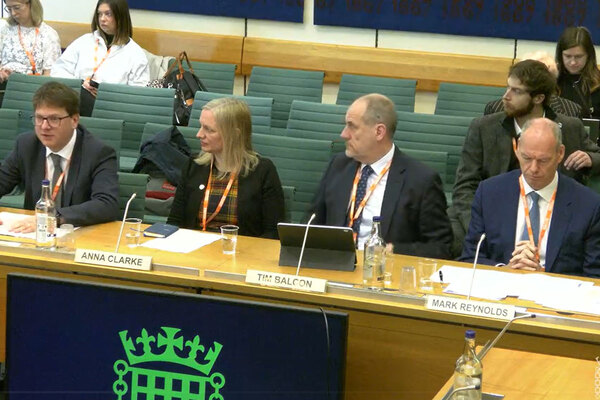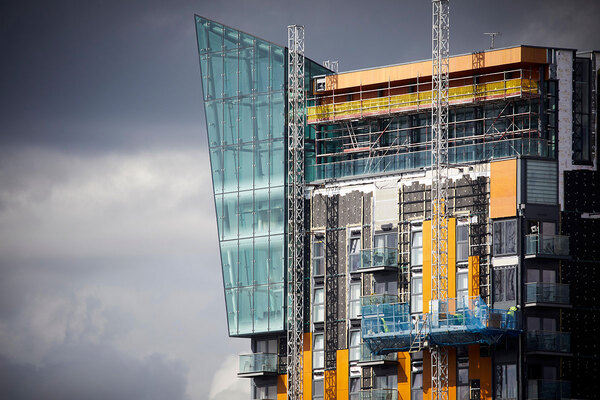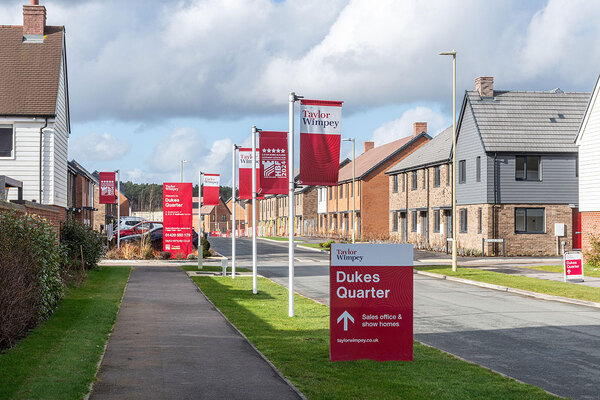NHBC should not have written ‘dangerous’ cladding guidance, former fire engineer accepts
The UK’s largest building control inspector should not have written “dangerous” guidance which endorsed the use of combustible cladding products, its former senior fire engineer said today.
John Lewis, a former fire engineer for the National House Building Council (NHBC), did not disagree when asked if its July 2016 guidance was “a dangerous mistake” which sought to achieve “business as usual at the expense of life safety” at the Grenfell Tower Inquiry today.
The document said builders could use aluminium composite material (ACM) cladding panels alongside combustible insulation products in cladding systems on high-rise buildings.
This is the combination of materials ultimately used on Grenfell, and represented a more permissive approach than allowed under official guidance in force at the time.
While the NHBC had no role in the tower’s refurbishment, the inquiry is investigating its role in legitimising the widespread use of combustible materials in high-rise cladding systems before the fire.
As the UK’s largest private building control inspector, the NHBC signs off more than half of the country’s residential construction projects, giving it substantial influence on the market.
Mr Lewis had previously explained how the NHBC had helped write industry guidance in 2014 which said cladding systems with combustible materials could be used on high rises, provided that the builder obtained a ‘desktop study’ from an expert which said the system would pass if subjected to a test.
Previously, guidance had only permitted systems with ‘limited combustibility’ insulation or those which had passed a large-scale test, but inspectors including the NHBC had been signing off a far-wider range of combustible systems.
As desktop studies became more popular, it produced the guidance in 2016 which went a step further: it listed “common” cladding materials which it said would be acceptable without even a desktop study.
Mr Lewis explained that the guidance was based on frequently approved systems and that it was intended to reduce the workload of both the NHBC and its clients.
“The processes we were going through were very time consuming,” he said. “We were realising that… the number of buildings that we were rejecting was very, very small because of the reports we were getting from reputable sources. There was a desire to move to a business as usual footing.”
He described “business as usual” as one where the cladding systems could be approved by individual surveyors without “needing every job to come across my desk”.
The guidance said ACM cladding panels with a Euroclass B rating and the combustible plastic insulation products Celotex RS5000 and Kingspan K15 would be acceptable without a desktop study.
The latter two were both used on Grenfell Tower, while the block’s highly combustible ACM panels had a certificate saying it was a Euroclass B.
Mr Lewis accepted the NHBC had seen no successful tests involving ACM before producing the guidance.
“Supposing [the inspector who signed off Grenfell Tower] had been an NHBC surveyor… he would have picked up this guidance [and] would have been quite entitled to accept the build-up as meeting the requirements of [regulations], would he not?” asked lead counsel to the inquiry Richard Millett QC.
Mr Lewis said he hoped that an NHBC inspector would have raised the plans with a manager despite the guidance, as the organisation had concerns about the use of ACM.
Mr Millett said: “Let me suggest to you that [this guidance]… was a dangerous mistake on the part of the NHBC, designed to go back to business as usual and at the expense of life safety. What do you say to that?”
“I have to agree it shouldn’t have been written, we shouldn’t have done it,” said Mr Lewis. He said the one “saving grace” was that a post-Grenfell review suggested the guidance had “never actually been used”.
Mr Lewis was also questioned over the suitability of carrying out desktop studies to approve combustible cladding systems in the first place.
NHBC witnesses have insisted this was in accordance with official guidance, which suggested in general terms that test data could be used to approve other similar products.
But Mr Millett pointed to passages in the official test for large-scale cladding systems which said the tests were only applicable to the specific system being tested.
“Do you accept that these paragraphs are completely inconsistent with the existence of [desktop studies for cladding systems]?” he asked.
Mr Lewis said the process of extrapolating test data was common in the construction industry. “If we had implemented [the guidance] rigidly as per what you’re saying here, then nothing would have been allowed to be built because there were only four [successful] tests and that would have been all the construction industry could build on high-rise buildings,” he said.
“The answer might have been that the construction industry would have had to use non-combustible materials or materials of limited combustibility on that basis,” said inquiry chair Sir Martin Moore-Bick.
“I guess that is correct. Yes,” replied Mr Lewis.
In the afternoon, the inquiry heard from Diane Marshall, the current operations director at the NHBC.
Asked why the firm had initially accepted the use of combustible K15 insulation on high-rise buildings, she said it had followed a certificate written by a respected third-party certification body: the British Board of Agrément (BBA).
This certificate said the material could be used in compliance with passages in building guidance which required the tougher fire rating of ‘limited combustibility’ and instructed builders to contact Kingspan to ask whether their specific system was compliant.
BBA witnesses have previously accepted that the certificate was “misleading” and written as a consequence of “very basic failures of due diligence”.
Asked why the NHBC did not question the claims, Ms Marshall said: “I saw no reason to challenge the credibility of the BBA certificate.”
“But it was incredible on its face, surely,” said Mr Millett.
“No,” said Ms Marshall. “The standing of a BBA certificate in the industry is well regarded.”
“Even if it says the moon is made of green cheese?” asked Mr Millett.
“It was unlikely to make that statement,” she replied.
“So it was a slavish following of a piece of paper really, to put it unkindly,” asked Sir Martin.
“A piece of paper produced by an accredited body that was well recognised,” replied Ms Marshall.
The inquiry continues, with further evidence from Ms Marshall tomorrow.
Sign up for our weekly Grenfell Inquiry newsletter
Each week we send out a newsletter rounding up the key news from the Grenfell Inquiry, along with the headlines from the week
Already have an account? Click here to manage your newsletters
